2024 at the University of Bath
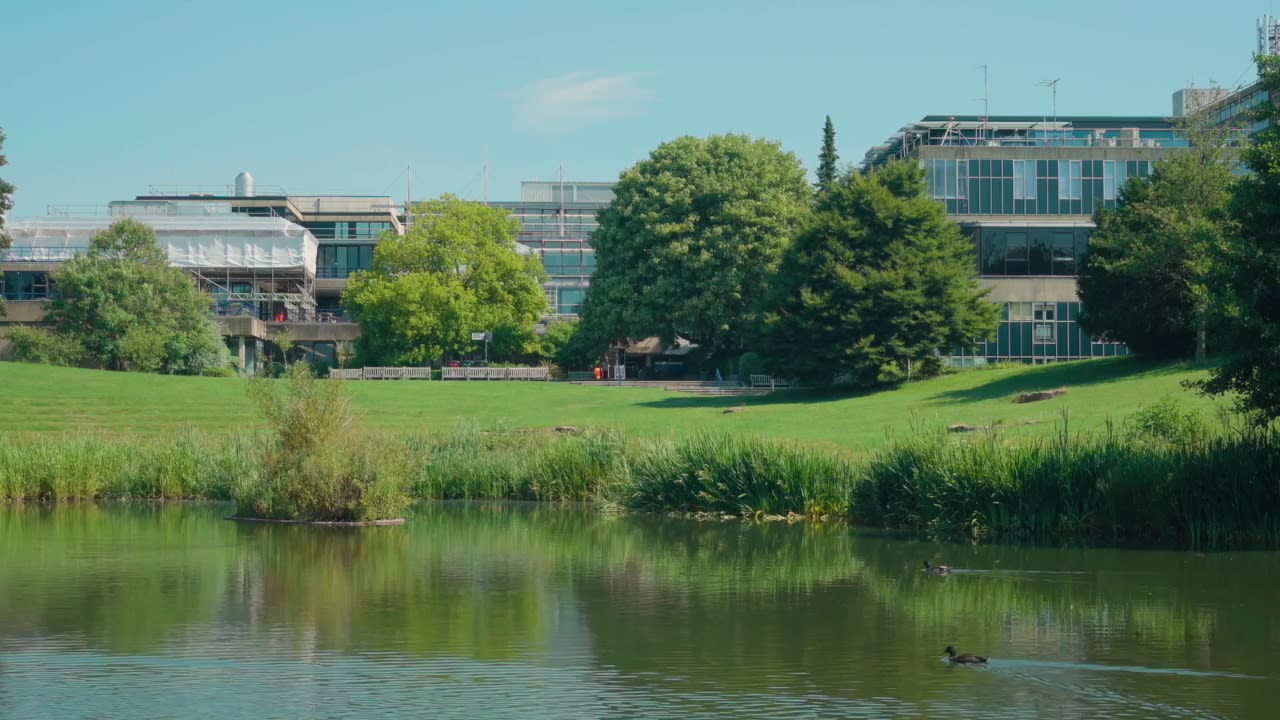

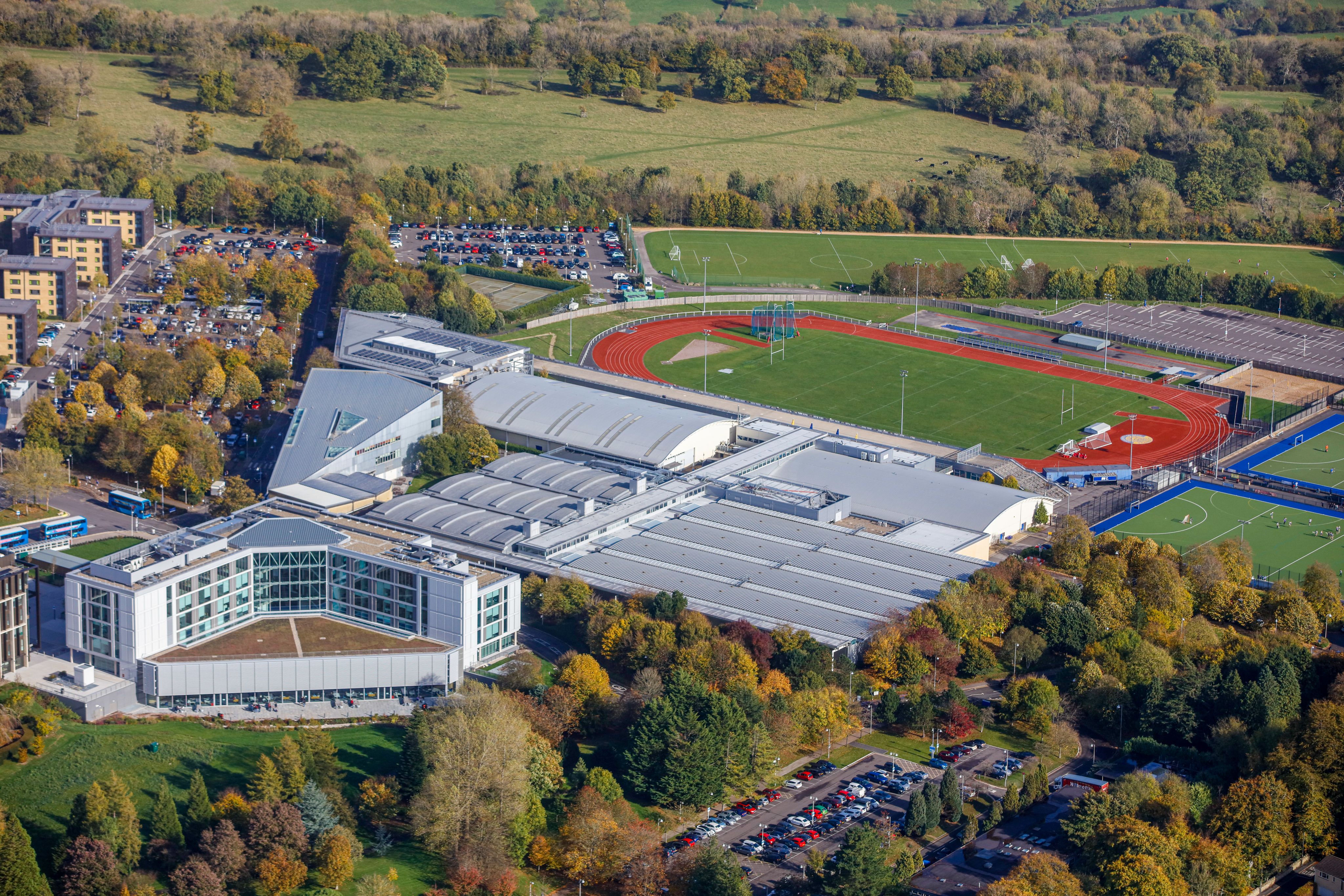
January - March
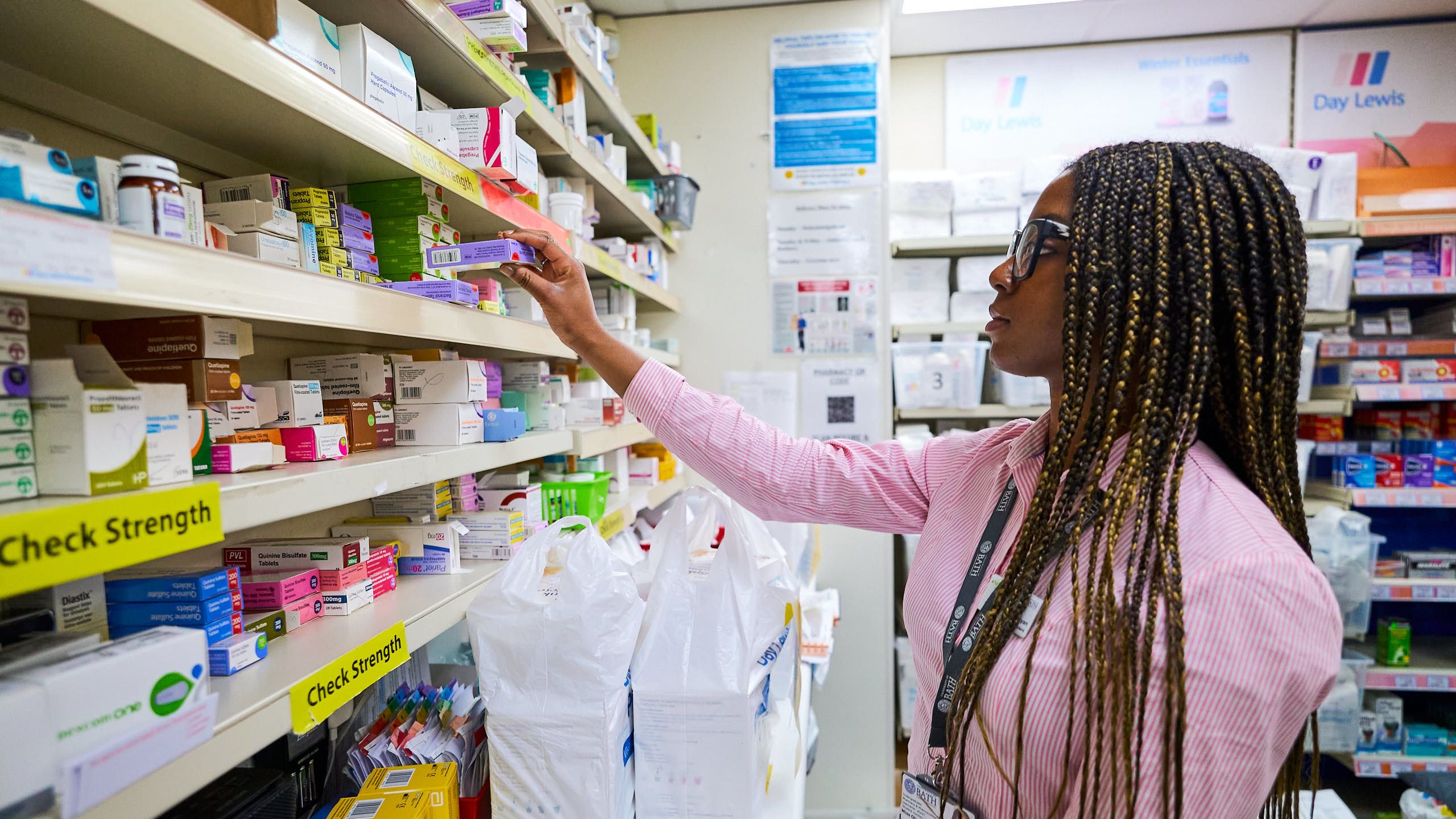
January
The year began with the news that Bath spinout company EnsiliTech had been awarded a highly competitive government contract to develop the world's first thermally stable mRNA vaccine.
In its work at the university, the team behind Ensilicated Technologies Ltd (EnsiliTech) has developed ensilication – a technology that allows vaccines and other biological materials to be transported and stored without the use of refrigeration. The aim of the two-year contract, valued at around £1.7million, aims to develop the world's first thermally stable mRNA vaccine.
Meanwhile, as the Post Office Horizon scandal made the news following the release of ITV series Mr Bates vs The Post Office, researchers from Bath analysed hundreds of transcripts from the ongoing public inquiry into the scandal and conducted interviews with sub-postmasters across the UK in an effort to understand why so few victims had spoken out. The study concluded that management failure and misplaced belief in technology explained why the scandal took so long to come to light.
Other research to make the headlines in January included work from our Department of Psychology that investigated the withdrawal symptoms experienced by people taking antidepressants, and the news that an undergraduate student had uncovered the secret science of why carrots curl. Mechanical Engineering student Nguyen Vo-Bui carried out the research as part of his final-year studies, in the limited circumstances of Covid-19 lockdowns of 2021. Without access to labs, Nguyen aimed to identify the geometrical and environmental factors which have the most influence on carrots’ longevity.
Photo by Markus Spiske on Unsplash
Photo by Markus Spiske on Unsplash
In January, the University also announced it was teaming up with the University of Plymouth to address the shortage of pharmacists in the South West. From September 2024, the highly ranked , significantly increasing the opportunities for students to study pharmacy in the South West region.
February
The UK’s first master’s degree course focused on applying skills in AI to engineering and design was launched at Bath in February. The MSc in Artificial Intelligence for Engineering and Design was designed to equip students with skills in applying AI tools responsibly and ethically, combining engineering and design knowledge with data science and machine learning to help solve complex and potentially safety-critical engineering problems.
Engineering and design professionals will be greatly affected by the digital transformation offered by AI tools. Participants in the course will explore AI and machine learning algorithms, learn how AI can help transform society through technological advancements, and understand and prepare for the impact, ethics, and human factors surrounding this new form of technology.
Research from the School of Management revealed the human consequences of pursuing modern slavery allegations, over supply chain failings, in Leicester’s ‘Boohoo Scandal’ in 2020. Professor Vivek Soundararajan, report author and researcher at the University of Bath’s School of Management, said: that 'Allegations of modern slavery, which were unfounded, obscured the root causes of worker exploitation, including manipulative procurement by fast fashion brands and lack of labour law regulation'.
Also in February it was announced Bath and GW4 researchers had been awarded £4.3million for world-leading research into severe mental illness, while a team from the University were celebrating after winning an international competition where cybathletes race against each other using their brainwaves alone. Taking part in the global CYBATHLON Challenge pilot Owen Collumb – a spinal-injury athlete based in Dublin, Ireland – used technology invented by University of Bath to complete a number of computer game-like challenges.
In engineering research news, we revealed that natural and recycled resources including prefabricated wall panels made from waste wood and insulation made from fungal mycelium are set to be tested by University of Bath researchers in a major European project to explore the building materials of the future
We also played host to hosted a very special football match as former University of Bath footballers reunited for a game to celebrate the 50th anniversary of their monumental victory in the UAU National Championships in 1974.
March
Rare weather conditions made it possible to see the aurora borealis over Bath in March, captivating both students and residents.
In research news, a study from the University highlighted concerns about Netflix's portrayal of pain in adolescent media, revealing that it often trivialises teenagers' experiences of pain. Adolescents watching popular Netflix shows such as Stranger Things and Sex Education or films such as Spiderman:Homecoming, are exposed to an average of 10 incidents of pain every hour. Dr Abbie Jordan of the Department of Psychology and Centre for Pain Research said it was important to 'accurately represent pain experiences' and instead of trivialising the experience, programmes could do more to educate young people about much more common, everyday pain.
During the month, it was found there was no evidence that CBD products reduce chronic pain, and taking them would be a waste of money and potentially harmful to health, according to research. CBD (short for cannabidiol) is one of many chemicals found naturally in the cannabis plant. It’s a popular alternative treatment for pain and is readily available in shops and online in the form of oils, tinctures, vapes, topical creams, edibles (such as gummy bears) and soft drinks.
“It’s touted as a cure for all pain but there’s a complete lack of quality evidence that it has any positive effects.”
In Episode Six of the University of Bath’s Research with Impact podcast, Roland Pease visits the Centre for Pain Research to find out how its academics are helping people who suffer from pain.
In March, we discovered the University would get to play a key role in a new consortium to support the development and introduction of zero-emission aviation in the UK. The HyFIVE consortium, led by Marshall and including GKN Aerospace and Parker Meggitt, will make use of the specialised research and development capability at Bath, as well as at partners at the University of Manchester and Cardiff University. The group will develop a world-leading hydrogen fuel system and accompanying supply chain, with the goal of supporting zero-emission aviation in the 2030s.
Research from the School of Management had some advice for social media influencers. A study from Dr Sarah Glozer found that social media influencers who want to be paid money for their content must focus on three key areas to lift themselves out of the gifts-in-kind trap and to protect their pursuit of meaningful work.
The Netflix adaptation of "The Three-Body Problem" from the Hugo Award-winning science fiction novel "The Three-Body Problem" by Chinese author Liu Cixin was released this month. Professor Ventsislav Valev, the Head of the Department of Physics at the University of Bath, was a big fan of the novel and shared some of his thoughts after watching the series.
Meanwhile, it was revealed that Bath would lead a £1.97M project enhancing professional development for Research Technical Professionals. The pioneering project will develop the skills of Research Technical Professionals (RTPs) and support them to work with industrial partners.
Dr Asel Sartbaeva.
Dr Asel Sartbaeva
University of Bath MPharm pharmacy course delivered at the University of Plymouth.
University of Bath MPharm pharmacy course delivered at the University of Plymouth
We awarded Dr Anne-Marie Imafidon MBE with an honorary Doctor of Science degree during our winter graduation ceremonies in January.
We awarded Dr Anne-Marie Imafidon MBE with an honorary Doctor of Science degree during our winter graduation ceremonies in January.
Professor Vivek Soundararajan.
Professor Vivek Soundararajan
Members of the NeuroCONCISE team celebrate victory. From left to right: Dr Attila Korik, race pilot Owen Collumb (wearing his brainwave-reading EEG headset) and Prof Damien Coyle.
Members of the NeuroCONCISE team celebrate victory. From left to right: Dr Attila Korik, race pilot Owen Collumb (wearing his brainwave-reading EEG headset) and Prof Damien Coyle.
📸 choo_chern on Instagram.
📸 choo_chern on Instagram.
Dr Sarah Glozer (left) and colleagues.
Dr Sarah Glozer (left) and colleagues.
On 20 March, Enterprise Day brought together our ecosystem of researchers, students, entrepreneurs, alumni and external partners to strengthen our entrepreneurial ecosystem, celebrate success, and engage with stakeholders to plan for future developments.
April-June
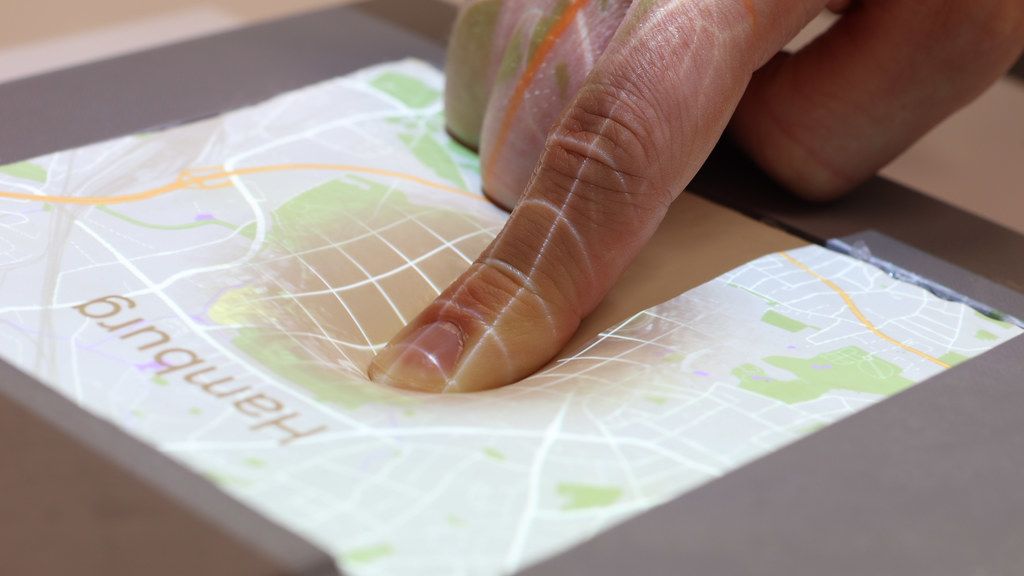
April
In April, we were proud to see that The Washing Machine Project, led by Bath alumnus Nav Sawhney, had partnered with the Whirlpool Foundation to deliver 10,000 manual washing machines to underserved communities worldwide. This collaboration will improve the quality of life for approximately 150,000 people in countries such as India, Mexico, Brazil, the Republic of Congo, Uganda, and Sudan. By providing these off-grid, manual washing machines, the project will save significant time for women and girls, reduce water usage, and promote sustainable laundry practices.
We also celebrated the launch of Prothea Technologies, a new spin-out company from the Universities of Bath and Edinburgh, with a mission to enable lung cancer biopsy and treatment in a single visit. The firm seeks to develop a medical device to quickly diagnose lung cancer lesions using a combined endoscope and image-processing system.
Later in April, a joint project by Bath & North East Somerset Council and the University of Bath to reduce carbon emissions in construction by connecting local planning policymakers with academic experts in sustainable construction was one of six innovations proposed by the Key Cities Innovation Network (KCIN) in “Civic Partners in Net Zero”, a collection of peer-reviewed studies detailing innovative ways in which universities are working with their local places to achieve net zero targets.
Then University Vice-Chancellor and President Professor Ian White joins Bath & North East Somerset Leader Councillor Kevin Guy at the launch of the report in the Houses of Parliament.
Then University Vice-Chancellor and President Professor Ian White joins Bath & North East Somerset Leader Councillor Kevin Guy at the launch of the report in the Houses of Parliament.
Internationally, a 20-minute documentary shot on location in the Democratic Republic of Congo (DRC) was screened at a UN event calling for improved working conditions in the cobalt industry.
‘Cobalt Rush’, produced by award-winning filmmakers, Roy Maconachie, Professor of Natural Resources and Development at the University of Bath, Simon Wharf from the University’s Media Production team, and Dr Bossissi Nkuba (a specialist in mining governance from the DRC), was screened at UN Headquarters in New York, during the first-ever UN General Assembly Sustainability Week, convened by the President of the General Assembly. The film powerfully tells the story of cobalt extraction from the perspective of artisanal miners at the bottom of the supply chain.
May
A touch screen that can be deformed through finger pressure, becoming softer or stiffer in direct response to force applied by the user, was revealed by computer scientists at the University.
DeformIO – as it has been named – is still a prototype and will require at least a decade of further development before it can be passed on to tech companies to be shaped into a commercial product, however its inventors regard it as ground-breaking technology.
The digital touchscreens of the future could let you 'feel' items through your phone.
Meanwhile, health research about Bath found that football players in England’s top-tier Women's Super League (WSL) were six times more likely to experience a muscle injury in the days leading up to their period compared to when they were on their period.
June
Music festival season kicked off in the UK with the news that festivals and mass gatherings can empower and inspire people making lifestyle changes for a sustainable future. Research from a vegan festival by Dr Annayah Prosser, from the University of Bath’s School of Management suggested the power of these collective experiences may have been underestimated.
Later in the month, an analysis of leaked documents by the Tobacco Control Research Group (TCRG) at The University of Bath, shows that PMI, the largest transnational tobacco company in the world, and its subsidiary PMJ, secretly funded Kyoto University academics to carry out research on smoking cessation. There is also evidence that PMJ funded a life sciences consultancy, run by a Japanese professor at Tokyo University, to build a network of experts to influence public health policy.
Informing health policy around the world to reduce smoking and save lives
June also saw Dr Simon Freakley, from the University's Institute for Sustainability, be awarded a prestigious Royal Society of Chemistry prize as part of a team developing a more sustainable way of producing nylon. The team '‘Greener route to nylon production’ group awarded the esteemed Royal Society of Chemistry’s (RSC’s) Environment, Sustainability and Energy Horizon Prize: John Jeyes Prize.
We were also excited to profile a new spinout company leading the charge to a new form of sustainable power by creating a battery that recharges itself when placed in soil. Bactery has developed bacteria-powered batteries – or ‘Bacteries’ – which harvest green energy from soil by taking advantage of natural processes that occur in microorganisms within it.
A family receive a washing machine from Nav Sawhney, his colleagues and Whirlpool staff, in India.
A family receive a washing machine from Nav Sawhney, his colleagues and Whirlpool staff, in India.
Prothea Technologies.
Prothea Technologies.
Professor Roy Maconachie (Director) and panellists discuss measures to end worker exploitation.
Professor Roy Maconachie (Director) and panellists discuss measures to end worker exploitation.
Scientists invent a screen that deforms beneath a user’s fingers, with the surface becoming softer or stiffer in direct response to force applied. Credit: Matt Sutton.
Scientists invent a screen that deforms beneath a user’s fingers, with the surface becoming softer or stiffer in direct response to force applied. Credit: Matt Sutton.
Dr Annayah Prosser.
Dr Annayah Prosser.
Dr Ben Metcalfe, Dr Jakub Dziegielowski and Professor Mirella Di Lorenzo launch Bath spinout company Bactery.
Dr Ben Metcalfe, Dr Jakub Dziegielowski and Professor Mirella Di Lorenzo launch Bath spinout company Bactery.
David McNulty, Head Coach of the hugely-successful Aquatics GB Performance Centre squad based at the University of Bath, was awarded an MBE in the King’s Birthday Honours for his services to swimming.
David McNulty, Head Coach of the hugely-successful Aquatics GB Performance Centre squad based at the University of Bath, was awarded an MBE in the King’s Birthday Honours for his services to swimming.
In June, Bath was ranked in the Top 150 universities worldwide in the QS World University Rankings 2025
Published by higher education insights and analytics provider QS Quacquarelli Symonds, the ranking is a key measure of universities’ quality and effectiveness and helps students around the world to make choices about study destination.
It’s the second year in a row that Bath has featured in the top 150, which places it in the top 10% of universities globally.
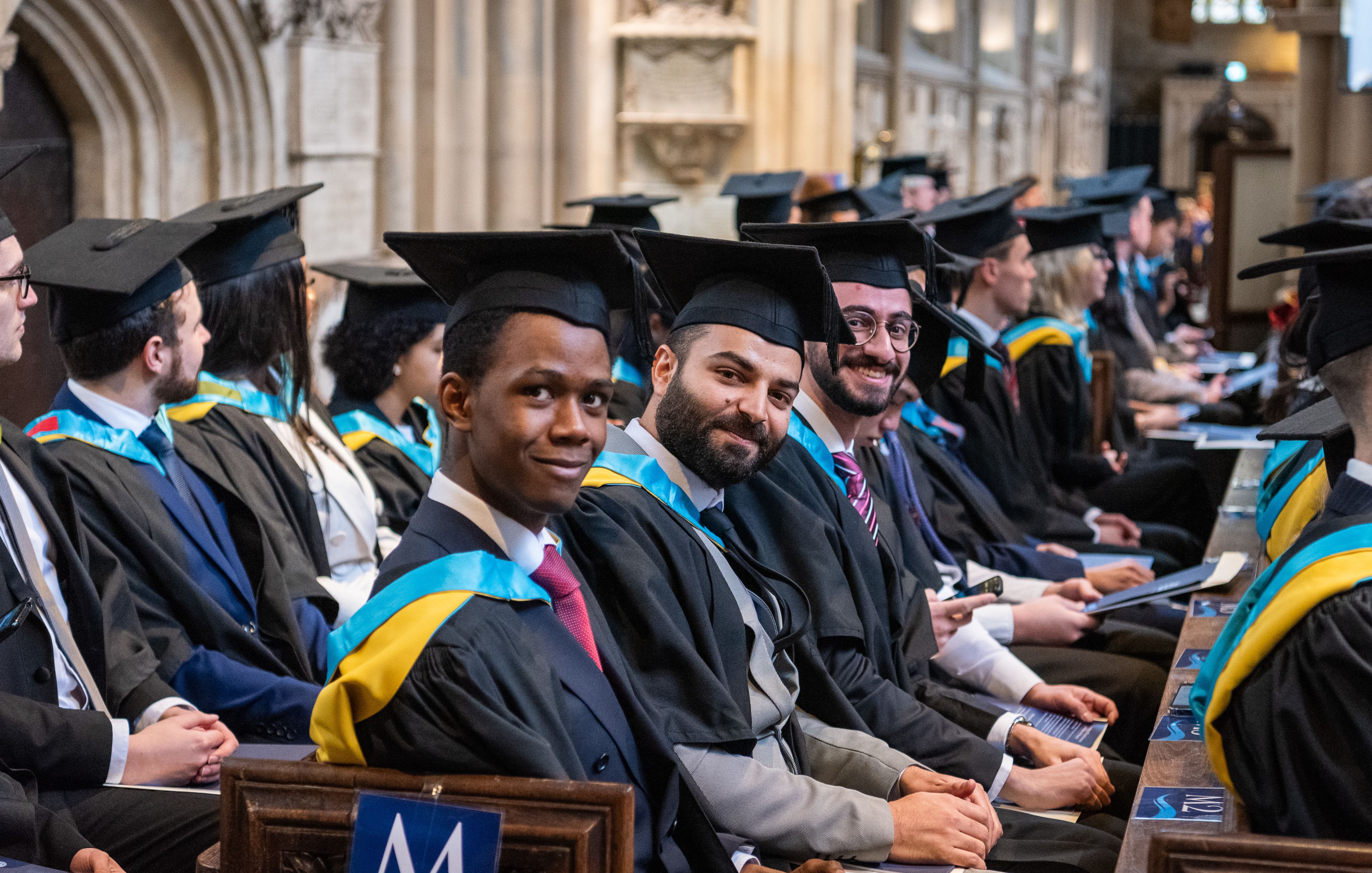
July-September
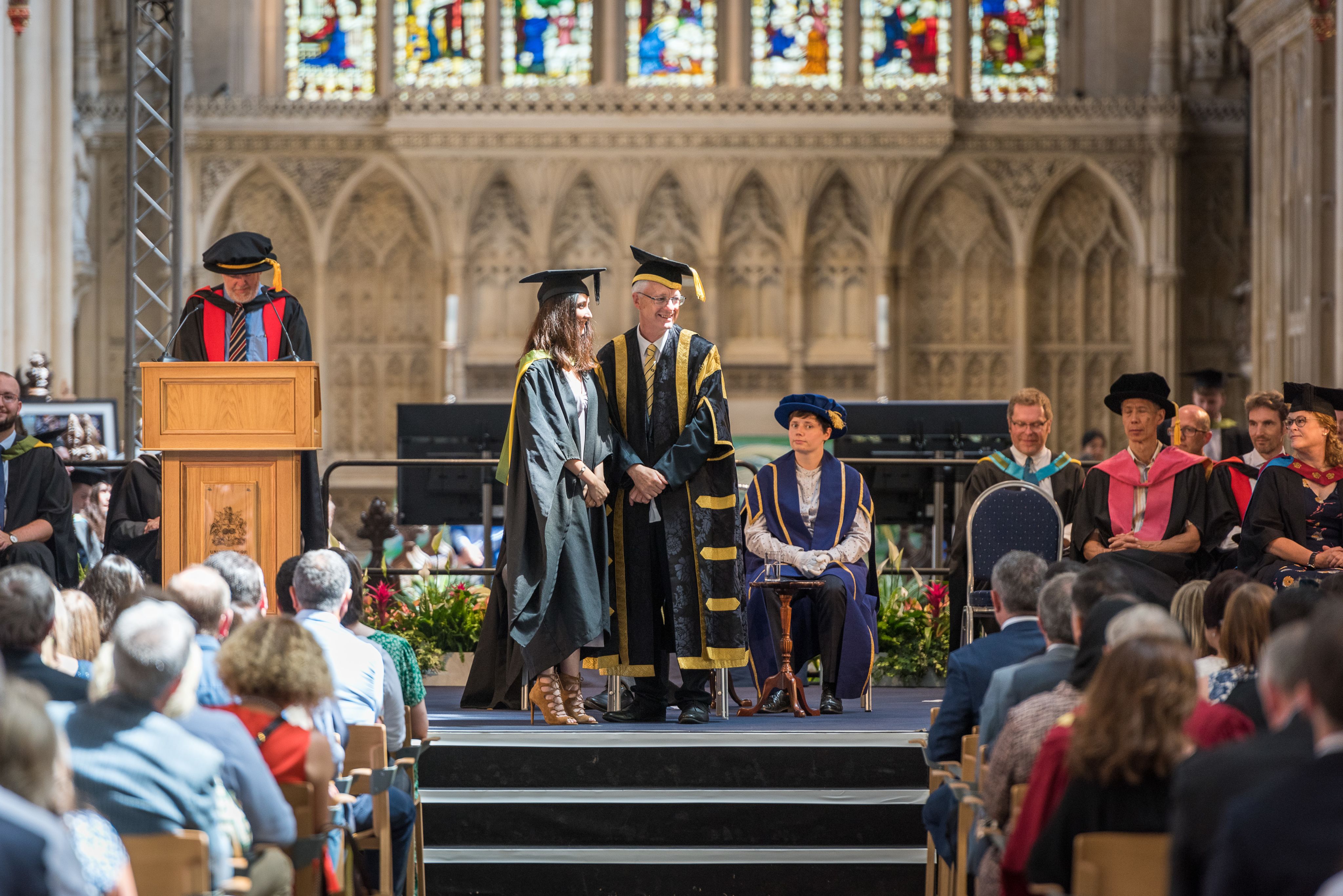
Students celebrate graduations at Bath Abbey
Students celebrate graduations at Bath Abbey
The BathMat inflatable prone repositioning device, being demonstrated with a healthy volunteer.
The BathMat inflatable prone repositioning device, being demonstrated with a healthy volunteer.
Paris 2024 Olympians and Paralympians are celebrated during special homecoming reception at University of Bath.
Paris 2024 Olympians and Paralympians are celebrated during special homecoming reception at University of Bath.
The Vice-Chancellor, Professor Phil Taylor, was appointed in August.
The Vice-Chancellor, Professor Phil Taylor, was appointed in August.
Team Bath Racing Electric, the University's electric Formula Student team, recently unveiled their new Formula Student electric vehicle at a special event with their sponsors, Rotork.
Team Bath Racing Electric, the University's electric Formula Student team, recently unveiled their new Formula Student electric vehicle at a special event with their sponsors, Rotork.
Alumna Adriana Brownlee became the youngest woman to reach the summit of the world’s 14 tallest mountains.
Alumna Adriana Brownlee became the youngest woman to reach the summit of the world’s 14 tallest mountains.
The University and The SU University of Bath were joined by the Royal United Hospitals Bath NHS Foundation Trust to mark Organ Donation Week and 30 years of the Organ Donation Register.
The University and The SU University of Bath were joined by the Royal United Hospitals Bath NHS Foundation Trust to mark Organ Donation Week and 30 years of the Organ Donation Register.
45 members of our Performance Rugby Programme who turned out to help tackle litter in Bath in September.
45 members of our Performance Rugby Programme who turned out to help tackle litter in Bath in September.
July
The University marked the success and achievements of its students in July with our Summer Graduations at Bath Abbey. During the celebrations, we were delighted to present Dame Dawn Childs, previously President of the Women's Engineering Society, and Fellow of the Royal Academy of Engineering, and Nigel Owens MBE, rugby referee and mental health pioneer, with honorary degrees.
Bath student in recovery from anorexia nervosa celebrates graduation.
The month also saw the University reaffirm its commitment to addressing key challenges within the city by signing an agreement with other civic institutions to work more closely together for the benefit of their home. The leaders of the University of Bath, Bath Spa University, Bath & North East Somerset Council and the Royal United Hospitals Bath NHS Foundation Trust signed the Future Ambition Civic Agreement after working over several years to develop effective ways to meaningfully collaborate.
Also in July, an investigation from Professor Chris Pudney found that school children in England are unknowingly smoking vapes spiked with the synthetic drug spice. Professor Pudney from the University's Department of Life Sciences conducted these tests using his invention - the world’s first portable device that instantly detects synthetic drugs. The research was later raised in Parliament by local Bath MP Wera Hobhouse.
In other research news, studies from Bath discovered conduct disorder in young people is associated with differences in surface area across much of the brain, patients with ADHD (Attention-Deficit Hyperactivity Disorder) are 60-90 percent more likely to miss appointments with their doctors, compared to the general population, and an inflatable cushion designed to help healthcare staff move patients entered clinical trials.
August
The University turned its attention to Paris as the Summer Olympics began. Athletes who train, study and studied at the University of Bath once again excelled on the greatest sporting stage of all with Bath-based athletes brought home 11 medals between them.
In health research news, a University of Bath study revealed that ketogenic low-carbohydrate diets can increase cholesterol levels and reduce beneficial gut bacteria. Lead researcher Dr. Aaron Hengist said 'Despite reducing fat mass, the ketogenic diet increased the levels of unfavourable fats in the blood of our participants, which, if sustained over years, could have long-term health implications such as increased risk of heart disease and stroke'.
Other big stories in August included research that identified signals in social media posts which could predict when someone posting on far-right forums was likely to go on to commit a terrorist act, and the news that a study co-authored by University of Bath researchers focused on developing a data sharing infrastructure within the UK’s energy systems to help reach Net Zero, had been positively received by the UK Government.
September
The University continued its strong performance in UK league tables as it was announced that Bath was ranked the UK’s 8th best university and the best in the south west in The Times and The Sunday Times Good University Guide 2025. The news followed recent top 10 rankings in both the Daily Mail and Guardian University rankings for 2025, alongside another 8th place ranking in the Complete University guide 2025. This meant Bath was in the top 10 across all major UK university rankings in 2025.
The news was welcomed by new Vice-Chancellor and President Professor Phil Taylor, who joined the University at the start of the month following the departure of previous Vice-Chancellor Professor Ian White.
"These strong performances are down to our focus delivering excellent teaching and research, ensuring that our students receive a high-quality and rounded experience, and the excellent career prospects that University of Bath graduates enjoy."
Also in September, Bath research recommended that the Government should carry out a comprehensive review of means-tested help beyond Universal Credit, while a microscope designed at the University won international recognition. The OpenFlexure Project was based at the University of Bath from 2017 to 2022 and has been creating publicly available designs for laboratory grade microscopes that can be built anywhere in the world.
Meanwhile, The blistering temperatures of future heatwaves in the UK were revealed on a new website which allowed users to search for their area by postcode to see what an extreme hot spell will feel like in the 2070s.
Innovation with Impact
Our Innovation with Impact campaign highlighted how we've worked with businesses, researchers, and students to enable new ideas, innovation, and growth. Over the course of the year, we've told the stories of students, researchers, industry partners, and alumni who've been supported by the University to launch new enterprises, commercialise research, and contribute to the region's economy.
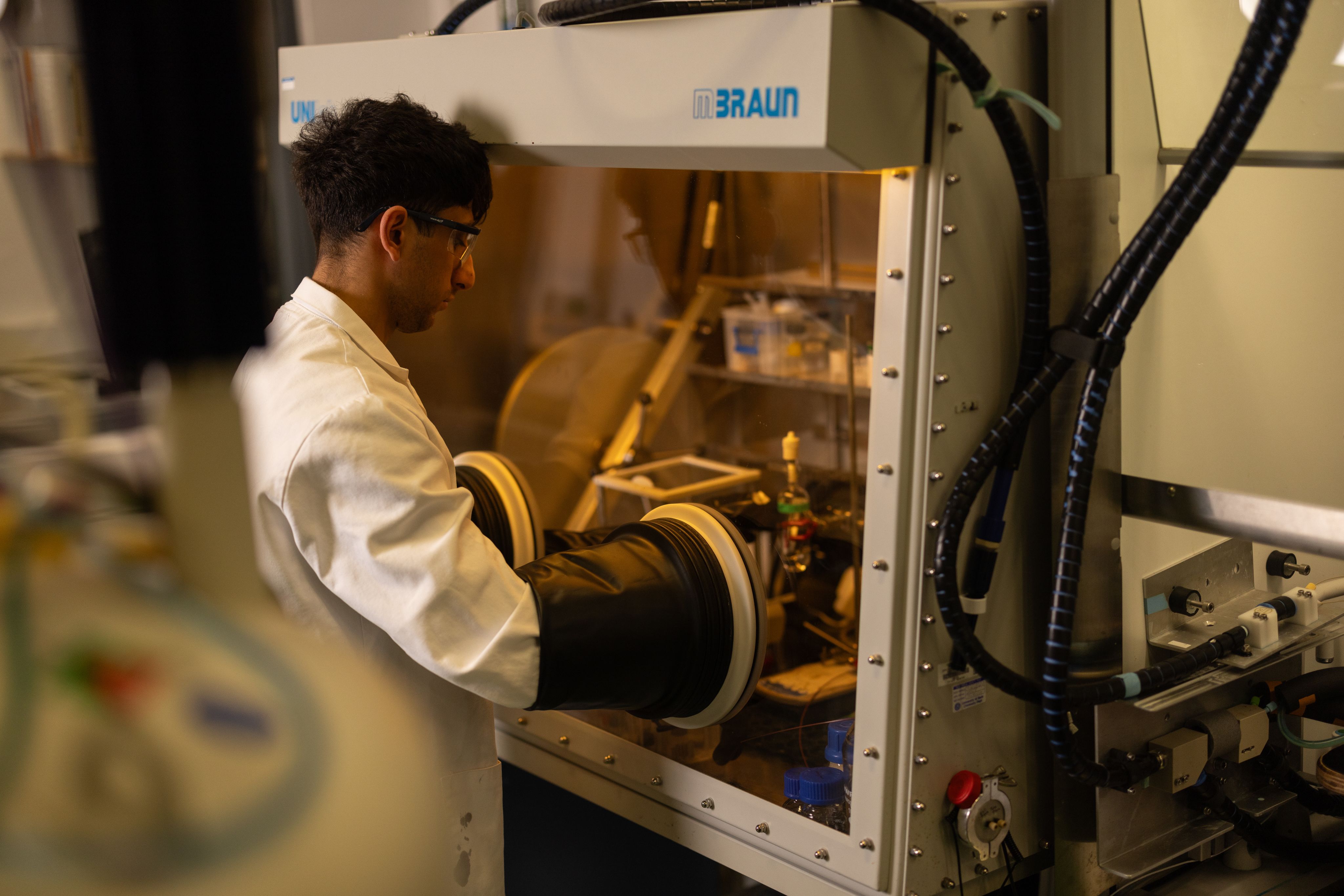
Find out more about our Innovation with Impact
Transforming Laundry: From Promise to Global Impact
Giving waste plastics a new lease of life
Business @ Breakfast
Business @ Breakfast is our successful monthly networking meeting for academics from Bath and professionals from Bath, Bristol and the surrounding areas for informative talks, networking and discussion around best practices and any issues facing businesses.
October-December
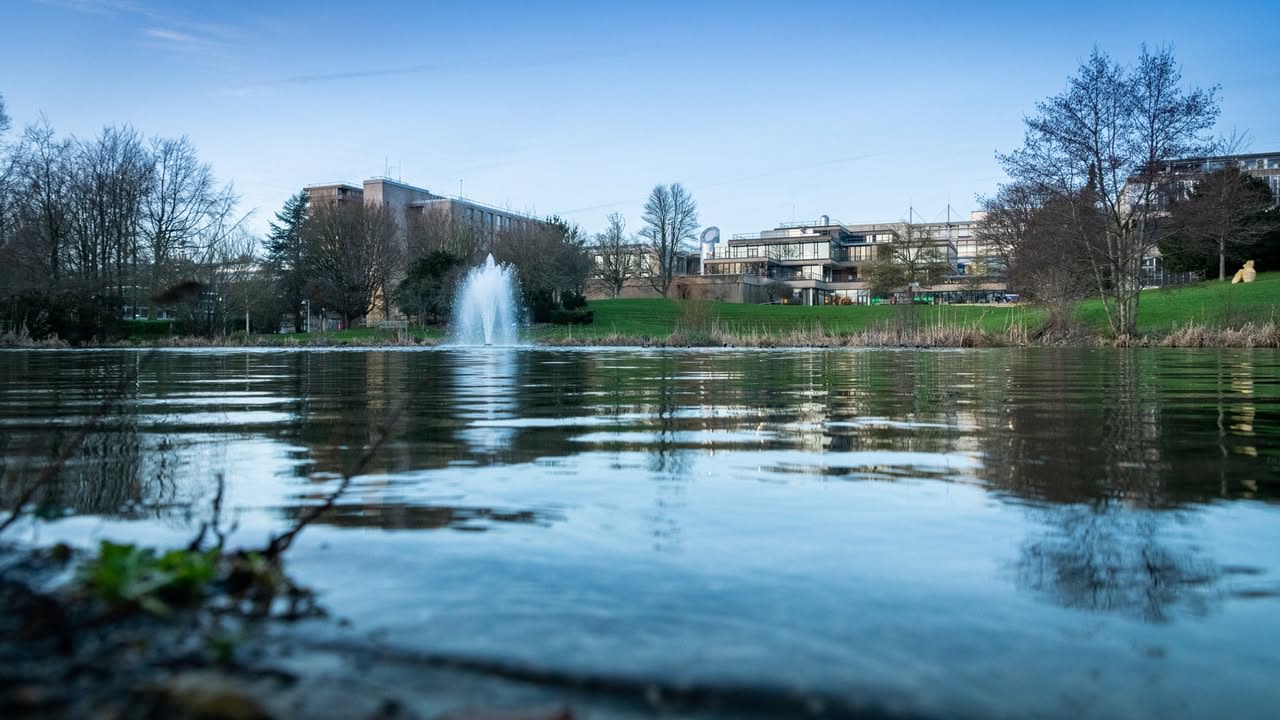
Vice-Chancellor and President Professor Phil Taylor meets alumnus Professor Raymond Schinazi, whose ground-breaking research led to the development of several antiviral drugs effective against HIV.
Vice-Chancellor and President Professor Phil Taylor meets alumnus Professor Raymond Schinazi, whose ground-breaking research led to the development of several antiviral drugs effective against HIV.
It was announced that Bath alumna and honorary graduate Anne McClain will command the 2025 mission to the International Space Station.
It was announced that Bath alumna and honorary graduate Anne McClain will command the 2025 mission to the International Space Station.
A photo from the Bath Indian Society Diwali Ball.
A photo from the Bath Indian Society Diwali Ball.
The Images of Research exhibition highlighting some of the ground-breaking work taking place at the University was held outside Bath Spa train station in November.
The Images of Research exhibition highlighting some of the ground-breaking work taking place at the University was held outside Bath Spa train station in November.
The impact of our student volunteers over 2023-2024.
The impact of our student volunteers over 2023-2024.
Christmas scenes in Bath.
Christmas scenes in Bath.
October
Bath was one of the first 15 Universities nationwide to receive the University Mental Health Charter Award. The University Mental Health Charter (UMHC) Award is awarded to organisations that demonstrate commitment to continuous improvement in the area of mental health and wellbeing for the entire university community. Speaking about the award, Professor Cassie Wilson Pro-Vice-Chancellor (Student Experience), said: 'There is a high bar to achieve this recognition and this demonstrates our long-term commitment to promoting good mental health and wellbeing for our entire University community.'
Professor Cassie Wilson.
Professor Cassie Wilson.
In October, researchers in our Department of Computer Science and Centre for Climate Adaptation & Environment Research, announced they had developed machine-learning software to enable CCTV in rivers to spot blockages and reduce floods, while teams from around the University took part in the welcome return of Bath Taps into Science at the Bath Royal Literary and Scientific Institution.
Staff and students at the Bath Taps into Science Festival.
Staff and students at the Bath Taps into Science Festival.
November
As the nights grew longer, research at Bath was helping lengthen the fruit-growing season in the UK. Work by Professor Petra Cameron had developed a new spray coating for greenhouses that optimises the wavelength of light shining onto the plants to improve their growth and yield.
Professor Petra Cameron explains more about work to develop a spray coating for greenhouses.
Work in our School of Management discovered that focusing attention on your mobile phone instead of your partner doesn’t just strain your relationship - it also affects women’s creativity in the workplace. The study shed light on the negative effects of ‘phubbing’, the idea of snubbing someone in favour of your phone, which is known for its detrimental impact on relationships and mental wellbeing.
“Phone usage is eroding the connection between couples and hindering their capacity to discuss and address stresses and concerns that are playing on their mind."
Meanwhile, a new study revealed how researchers in the tobacco, ultra-processed food (UPF) and alcohol sectors were frequently targeted with identical intimidation tactics. The most common method used by corporations or their proxies is public discreditation. Dr Karen A. Evans-Reeves from the University’s Department of Health and Tobacco Control Research Group said that shining a light on these 'highly unethical tactics', would hopefully reduce their chilling effect on improving health for people worldwide.
Team Bath Heart won the world Heart Hackathon for the second time.
Team Bath Heart won the world Heart Hackathon for the second time.
During November, we also celebrated the success of our students in Team Bath Heart who have designed and built their own artificial heart, and were named the best in the world for the second year running at the world Heart Hackathon in Japan.
December
The year at the University ended with a number of achievements for Bath and the South West. GW4 Isambard 3, a world-class supercomputer service for AI and high-performance computing (HPC), was officially launched to drive innovative new scientific research in a wide range of areas including clean energy. The new £10 million supercomputer has been developed as part of a collaboration between the GW4 universities of Bath, Bristol, Cardiff and Exeter, and in partnership with Hewlett Packard Enterprise (HPE), NVIDIA and Arm.
Volunteers at the Christmas 'wrapathon'.
Volunteers at the Christmas 'wrapathon'.
Meanwhile, the local community came together as 200 volunteers from Bath, including 55 volunteers from the University community, wrapped over 5,000 Christmas presents for Ukrainian children at our Scala Hall in Oldfield Park, and PhD student Karolina Pakenaite successfully climbed the Mera Peak Summit in Nepal as part of her training to become the first deafblind person to reach the peak of Everest.
Karolina Pakenaite speaks about her aim of being the first deafblind person to reach the summit of Mount Everest.
In other news, research from Bath showed flagged the reality of post-rescue life for people freed from modern slavery. The study found people rescued from trafficking are often cast into years of bureaucratic wrangling and legal limbo or forced back into exploitative work. Meanwhile, in the Faculty of Engineering, a project to develop the world-first flooding model was revealed.
Winter at Bath activities for students.
Winter at Bath activities for students.
As Christmas approached, the University hosted its regular programme of winter events for students staying on campus - including a Christmas meal - while also highlighting how creative research communications can drive behaviour change with a story highlighting the plight of sad bananas as a way of reducing food waste.























































